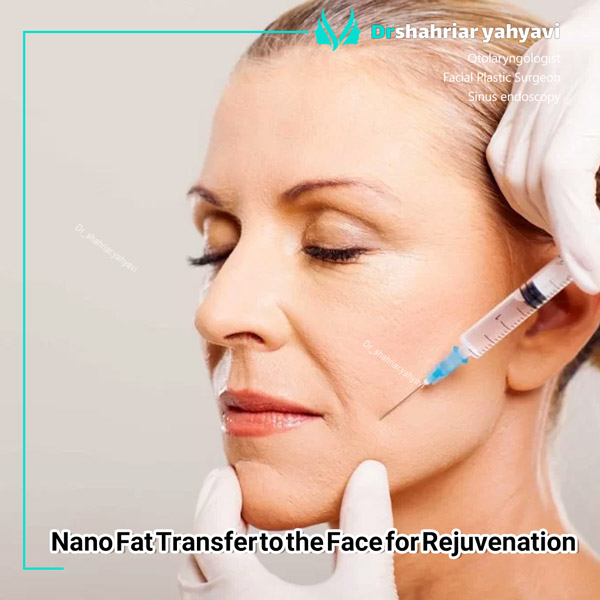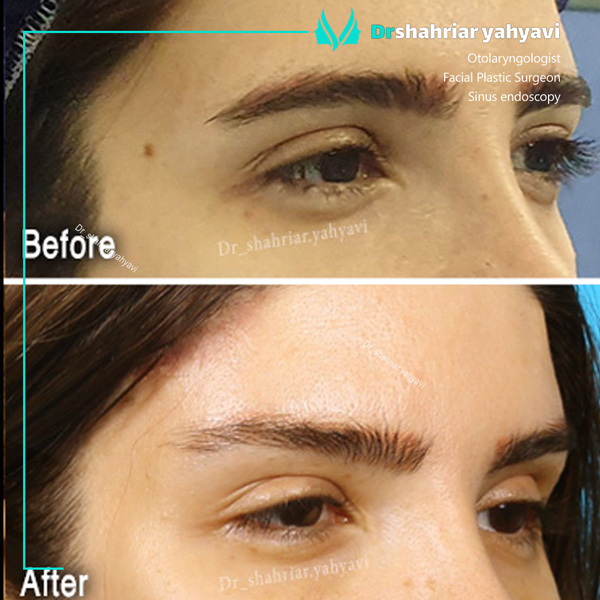After your rhinoplasty, swelling is a very common and natural side effect among patients. Patients with thick nasal skin experience more swelling after rhinoplasty. As nose is the central feature on the face and it is not easy to conceal the swelling and bruising around the eyes, on the cheeks and even around the lips, so it is necessary to use modern techniques in performing the procedure to lower swelling as much as possible.

Dr. Shahriyar Yahyavi is a renowned rhinoplasty surgeon in Tehran, Iran with decades of experience producing excellent results for many patients from all around the world. If you are looking for the best instructions and solutions to lower swelling as quick as possible, you can study the following explanations by this well- known surgeon.
Is face swelling normal after rhinoplasty?
Face and nose swelling is the natural reaction of body to surgical dissection of tissues that settles down after the healing process. It takes about a year to see the final results. After 12 months, your nose swelling resolves and your nose tip refines. In some cases, it takes longer than a year for swelling of the nasal tip to resolve completely.
What factors affect the amount of swelling after rhinoplasty?
Although facial swelling after rhinoplasty is natural and cannot be avoided, but its extent is not the same in all patients. The severity of swelling after rhinoplasty depends on the number of factors:
- Nasal skin thickness: Skin in bony noses is usually thinner and these noses experience less swelling after rhinoplasty, but swelling in fleshy nose types that usually have thicker skin, is more and last longer.
- Surgeon experience: A skilled surgeon has a close attention to details and has a sophisticated understanding of incision patterns that are the best options in order to lower swelling as much as possible.
Surgeon’s experience is crucial in both open and close approaches to decrease the amount of swelling.
- Changes made to your nose: More surgical treatment needed for noses with poor structure disposes nose to more traumatic injury. The more traumatic injury will increase the amount of swelling after the surgery.
- Post-operative instructions: Underestimating the surgeon’s aftercare instructions will amplify swelling after the procedure. As an example, you should avoid having salt and spicy food during healing process, as they increase the amount of swelling after rhinoplasty.
Following the right method of taping nose after the surgery can decrease the swelling, too.
What should we do to decrease swelling after rhinoplasty?
- Put ice compress on your cheeks
- Keep your head elevated
- Avoid strenuous activities
- Follow your surgeon’s instruction to tape your nose
- Avoid bending down your head
- Avoid the sun exposure
What to eat to after rhinoplasty to reduce swelling?
- Minimize your salt consumption
- Have more health fluid and fresh juice such as pineapple juice
- Have less solid food that needs more chewing
- Avoid smoking and drinking alcohol
What is benefit of taping nose after rhinoplasty?
After removing splint, your nose is swollen and taping can be useful to reduce swelling. Taping puts a gentle amount of pressure on the nose and prevents fluid retention. Another benefit of taping nose is that the pressure on the nose encourages collagen production that improves the healing of the incisions. Generally, most patients can expect to tape their nose for 1-2 months.
It is usually recommended to patients with thinner and clear nasal skin to tape their nose for about a month, but this period of time is longer for patients with thick nasal skin and takes about 2-3 months. Some patients may have allergic reactions to tape. It is recommended to these patients to avoid taping their nose.
If you desire to witness the improvements to your nasal appearance and structure, it is important to follow a right nose taping pattern in a regular basis. The primary purpose of taping nose is to diminish swelling. Besides, it acts as a sign of danger to others to be mindful of their actions and interactions.
How long does swelling last after nose job surgery?
About 60-70 percent of swelling will settle down often as early as 1-2 months and the whole swelling will usually settle down fully after about a year and you can see the final result.
What pills are good for nose swelling?
Most patients ask their surgeon to introduce a pill that may have effect on the nose swelling after the surgery. There are many different brand names of these tablets in the market but there is no scientific evidence that these tablets can settle down swelling. You need to take your surgeon advise in this regard.






